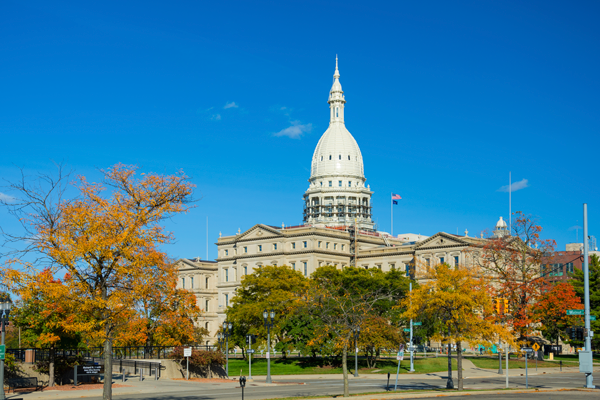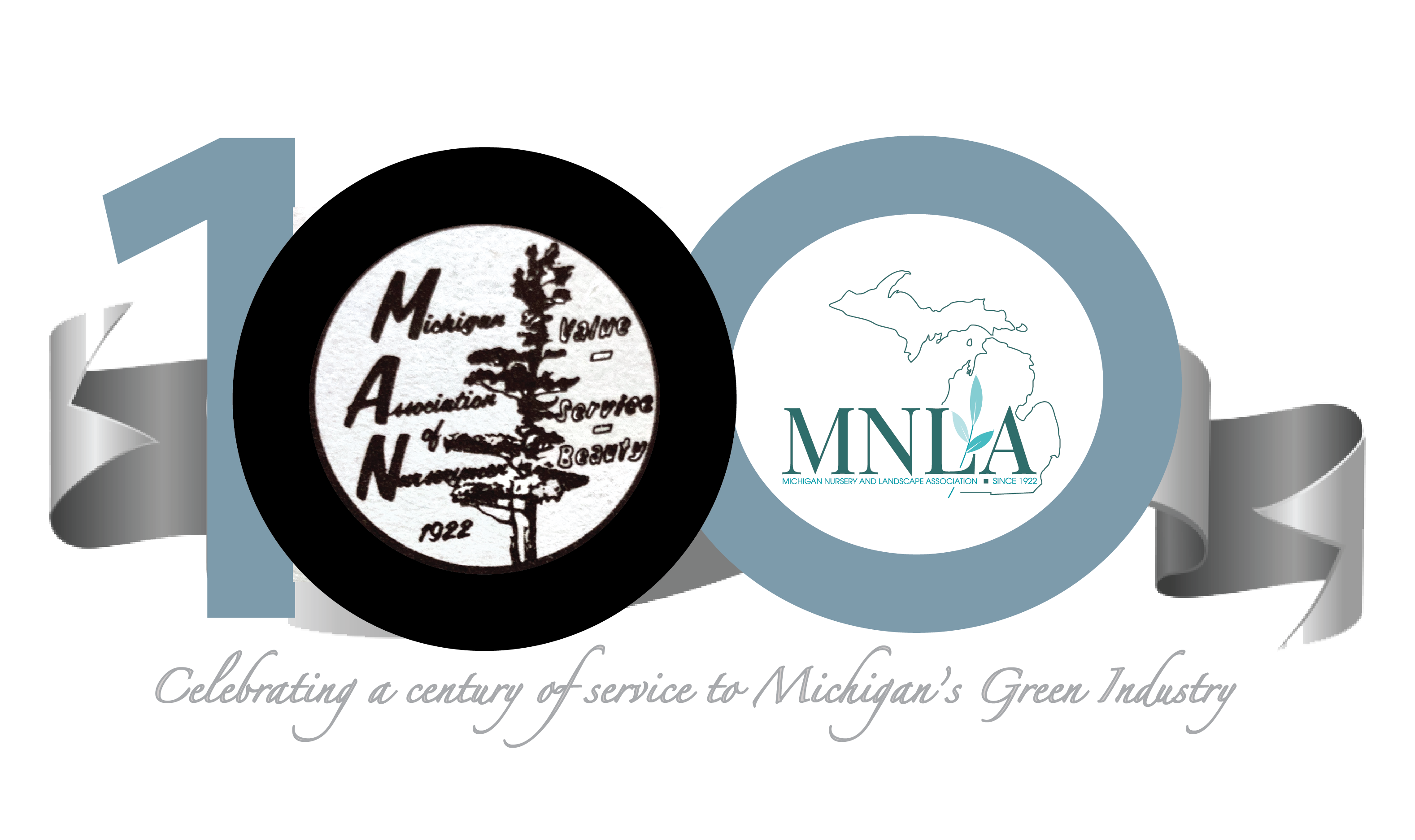As the voice of Michigan’s Green Industry, the Michigan Nursery & Landscape Association is the lead organization shaping public policy and regulatory policy to benefit and protect Michigan’s Green Industry. Through professional staff, the MNLA Board of Directors and Legislative Committee, professional lobby firms, and our national partnerships, MNLA works hard to protect your interests before Legislators and Regulators at our State Capitol and in Washington, D.C.
We have a seat on and/or serve on many State and National Boards and Committees to ensure a balanced blend of industry and natural interests, serve as a conduit for communication between industry and other interests, provide education and information about our industry to consumers, the Michigan Legislature, Congress, State and National Agencies and work to maintain a sound, science-based voice as it pertains to issues affecting our industry.
For questions or more information on MNLA’s Advocacy efforts please contact Amy Upton at either (517) 381-0437 or Email Amy Upton.

Earned Sick Time Act (ESTA)
On Feb. 21, 2025, the Governor signed Senate Bill 8, which is now Public Act 1 of 2025, and House Bill 4002, which is now Public Act 2 of 2025; they both have an effective date of Feb. 21 at 12:02 a.m. Below is more information on both the Earned Sick Time Act and the Minimum Wage Rate. Specific application and impact to your business’s unique situation should be discussed with an attorney and/or accountant for compliance purposes.
Earned Sick Time Act – we’ve found these resources to help you maneuver this Act. Please note: the date that you had to start complying with this Act was February 21 at 12:02 a.m., the date you have to communicate to your employees about this Act and provide specifics for your business “is at the time of hiring or by March 22”.
Earned Sick Time Act (ESTA) Resources
1. From the Michigan Department of Labor & Economic Opportunity:
The Michigan Department of Labor and Economic Opportunity (LEO) has recently updated their Frequently Asked Questions (FAQs) regarding the Earned Sick Time Act. These updates provide additional clarity on important provisions of the law and offer guidance on how employers and employees can navigate its implementation.
We encourage you to review the updated FAQs to stay informed about any changes that may affect your workplace.
Frequently Asked Questions (FAQ)
Earned Sick Time Act FAQ - Spanish
Earned Sick Time Act FAQ - Arabic
Posting Requirements
Earned Sick Time Act - Required Poster
Earned Sick Time Act - Required Poster - Spanish
Earned Sick Time Act - Required Poster - Arabic
Recorded Overview
On Feb. 27, 2025, LEO Deputy Director of Labor Sean Egan hosted a live webinar to help viewers understand recent changes to Michigan’s minimum wage and earned sick time laws and how the new laws will affect workers and businesses.
Additional Resources Available
To help you further understand the Earned Sick Time Act and its requirements, we also want to remind you of the valuable resources available on our website at www.michigan.gov/EarnedSickTime.
Contract Notification
Employers with contracted employees* (contracts signed before Dec. 31, 2024, lasting three years or less) must notify the department if those employees earn:
- Less than 72 hours of sick time (for standard employers) or
- Less than 40 hours (for small employers).
The Earned Sick Time Act will apply only after the contract expires if:
- The contract was signed before Dec. 31, 2024.
- The contract is three years or shorter.
- The contract conflicts with this Act.
- The employer notifies the department at: leo-estacontract@michigan.gov.
*This does not apply to employees working under a Collective Bargaining Agreement.
Questions
Additional resources are available online at www.michigan.gov/wagehour or you may contact Wage and Hour if you can’t find what you’re looking for.
2. From the Michigan Chamber of Commerce:
Samples:
- Employee Notification Letter (required by March 23, 2025)
- Employer Compliance Worksheet
3. From Yeo & Yeo CPAs & Advisors (MNLA’s Accounting Firm):
Click on “Navigating Changes in Michigan’s Minimum Wage and Sick Time Regulations, A Guide for Employers” to view this Guide.
Michigan's Minimum Wage Rate – click HERE for Frequently Asked Questions, Posting Requirements, Informational Sheets, and the Acts and Rules.
- Effective February 21, 2025, the minimum wage rate is $12.48 per hour.
- Effective January 1, 2026, the minimum wage rate is $13.73 per hour.
- Effective January 1, 2027, the minimum wage rate is $15.00 per hour.
Corporate Transparency Act - Beneficial Ownership Filing
On March 2, 2025, the U.S. Department of the Treasury issued a news release announcing that it will not enforce any penalties or fines under the Act under existing regulatory deadlines or after forthcoming CTA rule changes take effect.
On March 3, 2025, a Michigan federal district court held that the CTA's reporting rule is unconstitutional, stating that while the CTA may have designed with good intentions, its approach exceeds reasonable constitutional limits.

